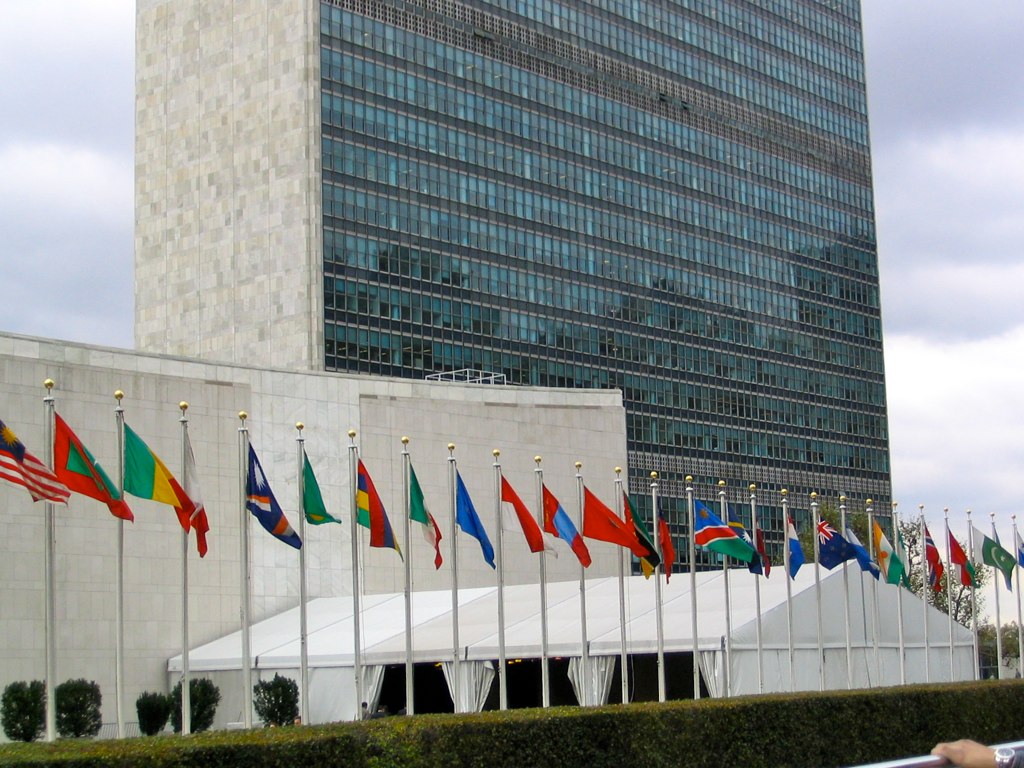By Cindy Eschliman

It is not often that I am put in a position of being in the minority. I am a young, white woman, who grew up in Hutchinson, KS – the center of the Midwest and I now attend college in Hastings, NE – an even smaller Midwestern town. The Midwest is typically considered to be sparse and without diversity (I can say from experience that although this is not necessarily true, in comparison to larger cities, there is much less integration and understanding). So, when I arrived at LaGuardia Airport on Friday, February 18th, I was shocked to hear the loud buzzing city, to see the packed, busy, dirty streets and taste the difference in the air.
As it turned out, I was rooming with a young, Hispanic woman, who would describe her first language as Spanish. The other young Presbyterian women I was gathering with also spoke Spanish – I was the only one who didn’t. Respectfully, they spoke English with me and around me because they wanted me to be invited into their conversation. This consideration was a shock to me. English was the only language I knew, let alone was used to hearing. Throughout the week I was surrounded by women (and a few men), who were from all different communities, countries, cultures and spoke different languages. And just as one young woman spoke of her enlightenment to the realization that God is the God of everyone, not just people like her (or those who speak her language), I too was exposed to this broader understanding of God. Although, I had always know in my heart that God is the God of all, this week I have been able to see it in practice.
I am entirely thankful to have been given the opportunity to attend the United Nations Commission on the Status of Women. The experience has opened my eyes to the wonder of diversity and how to advocate, specifically on behalf of women all over the world. Too often, I feel inadequate and uneducated as to how to even interact with people of different cultures, languages and race because I have not been exposed to such diversity. This week provided me with a safe space to ask questions and open up about how I am so afraid of accidentally offending someone different than me. The women listened to my confession and welcomed me with open hearts; I cannot thank them enough for their support.
The United Nations Commission on the Status of Women was focused on providing women and the girl child with equal access to science and technology. Theologically, the theme of access was interesting to point out. During one of the Ecumenical Women orientations we took a closer look at Romans 5:1-5,
“Therefore, since we are justified by faith, we have peace with God through our Lord Jesus Christ, through whom we have obtained access to this grace in which we stand; and we boast in our hope of sharing the glory of God. And not only that, but we also boast in our sufferings, knowing that suffering produces endurance, and endurance produces character, and character produces hope, and hope does not disappoint us, because God’s love has been poured into our hearts through the Holy Spirit that has been given to us.”

Throughout the passage are words such as “boast,” “sufferings,” “endurance,” “character,” and “hope.” To society, about half of these words look negative and half positive, but in the context of this passage, they are all positive, leading to better things along the way. And so, when I take this and apply it to women and women’s rights across the world, I see that women have taken a stand, a strong fighting stance, against violence, unequal pay, unfair conditions and anything that might oppress the woman/ girl child. So, although, women have suffered, we are enduring, and producing character – one that includes equal access and this gives us hope that one day, the world will reflect God's love for all people.
Since I returned from the eye-opening trip, I have already begun to express my newfound appreciation for women all over the world. I have started to understand that I am a part of a great network of women all across the nations. And I have started promoting the increased awareness of women’s rights for all peoples.
So, I will forever be working for women’s equal access to science and technology (and in every aspect of life) here, because a vote for women here, is a vote for women everywhere.
Pictures taken by Christine Mangale. Cindy Eschliman is a member of the National Network of Presbyterian College Women.


